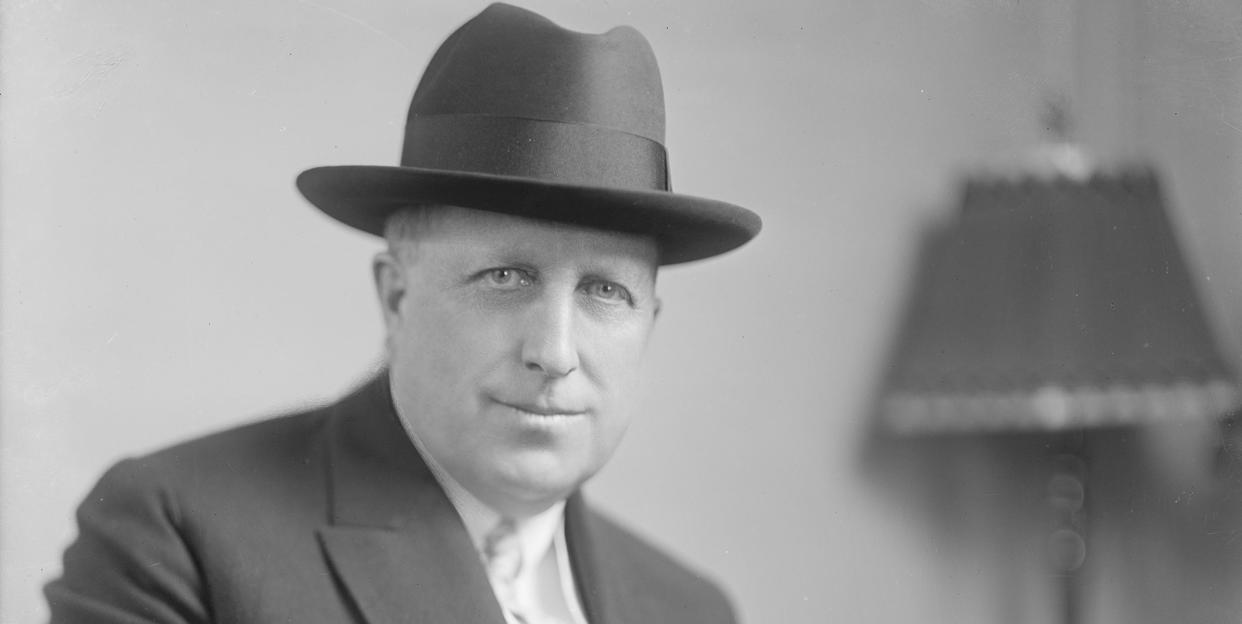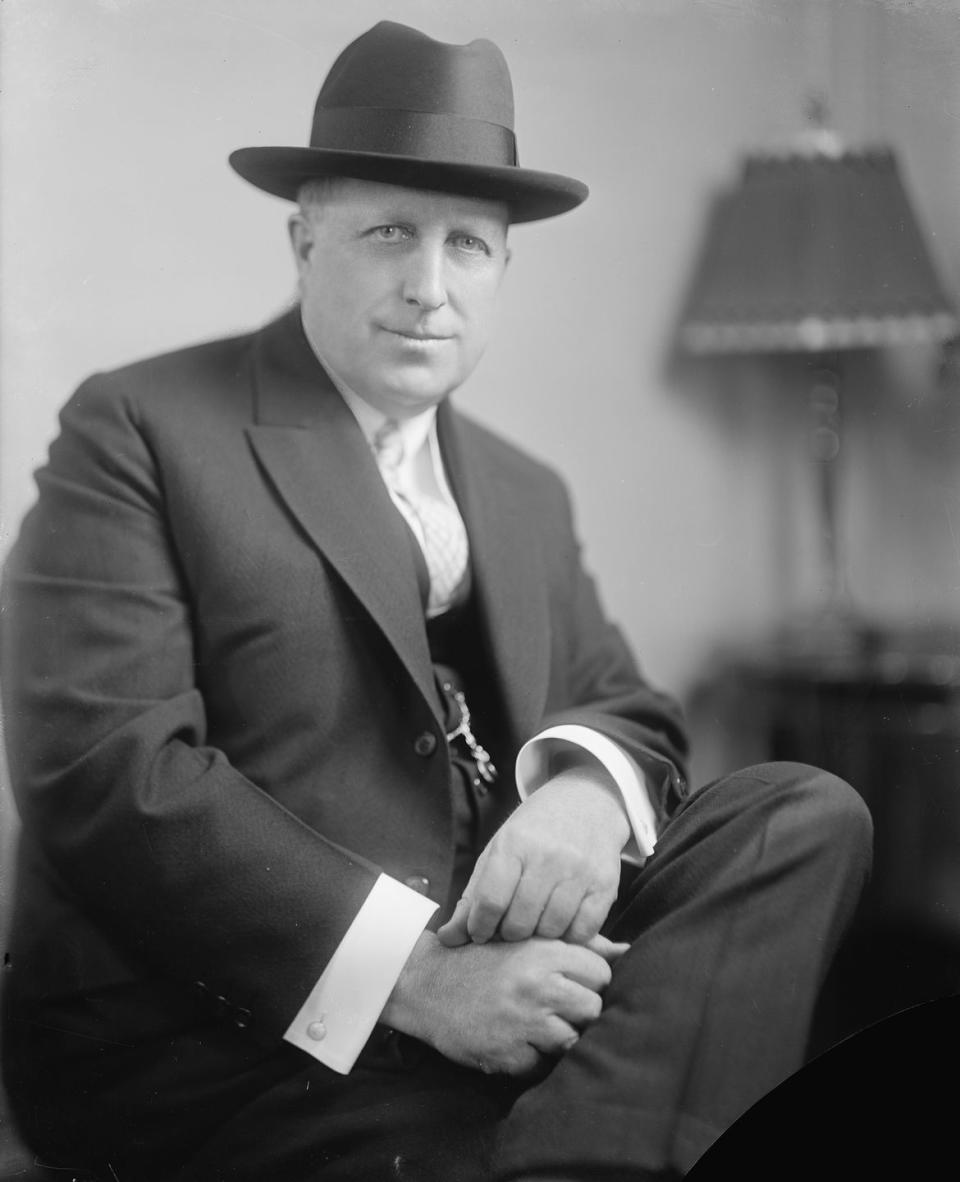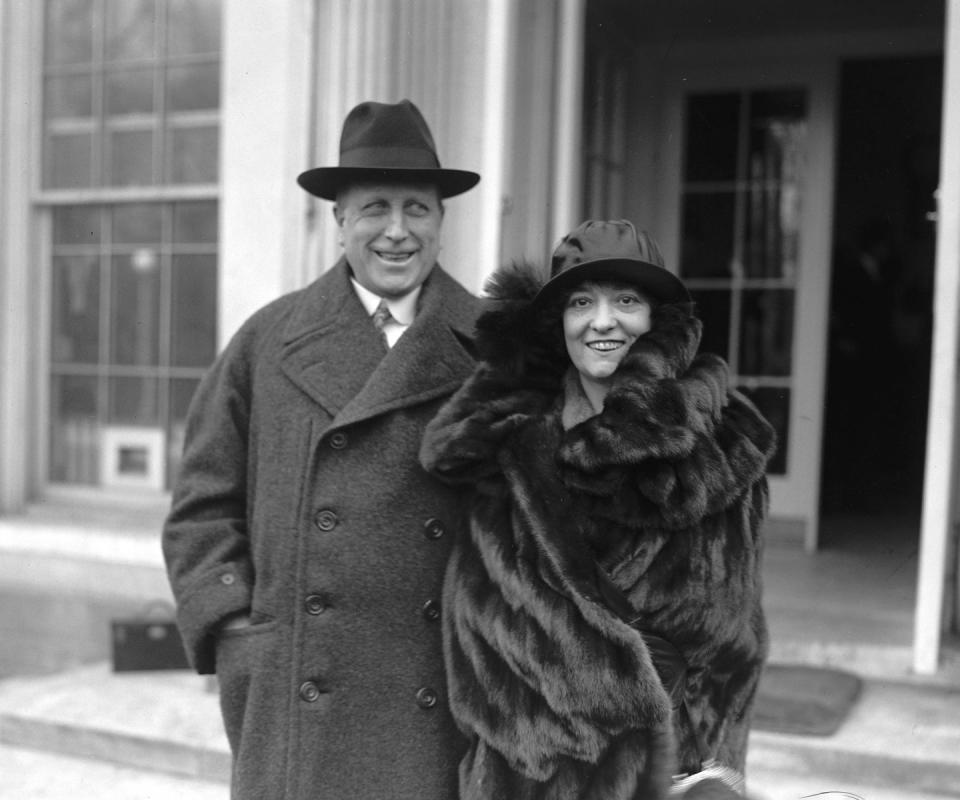A New PBS Miniseries Charts William Randolph Hearst's "All-Consuming" American Empire

The highly anticipated third season of Succession will continue to follow the Roy family—a dynasty of fictional media moguls who become embroiled in all sorts of upper crust business and personal drama. As you await the premiere, perhaps it's fitting to learn about the original Logan Roy of sorts—William Randolph Hearst.
A new PBS miniseries, Citizen Hearst, explores the life and legacy of one of the world's most famous news magnates. The title, of course, comes from the famous Orson Welles film, Citizen Kane, whose titular character was also said to be inspired by Hearst. The comparison checks out—by the 1930s, Hearst had the largest media empire in the country, with 28 newspapers, a movie studio, a syndicated wire service, radio stations, and 13 magazines. (Notably, Town & Country is a Hearst publication.) He held enormous power in Washington and in Hollywood and, as PBS describes him, "forever transformed the role of media in American life and politics."
The documentary series will air on PBS in two parts, on September 27 and 28 at 9 p.m. ET. Prior to its airing, T&C sat down with Citizen Hearst's director Stephen Ives, who is also known for his decades-long collaboration with Ken Burns. Read our conversation below, and watch an exclusive clip from the series above.
What drew you to the Citizen Hearst project?
Hearst, in so many ways, is really embedded in the DNA of American media today: the way stories are packaged and moved from one platform to another; the influence of celebrity; at times, the casual approach to the truth; the showmanship; the sheer volume of messages, all feel like they are lineal descendants of what Hearst pioneered in the late 19th and early 20th century. So, he seemed like an interesting and timely person to shine a light on and the deeper we got into his story, the more that proved to be the case.

In the documentary there is a large emphasis on Hearst’s political ambitions. Did you always know that would be such a big part of the film?
Well, I think his politics are complicated in some ways. He was a Democrat back when the Democratic Party was very much in favor of a white supremacist, more anti-immigrant point of view. But they were also, in some ways, progressive about trying to reform city government and he was a true crusader for reform early in his life. And then he drifts more towards the right and becomes more Conservative as he gets older and wealthier and he begins to reflect a more classic, plutocratic view of the world.
So, there's this tension between his impulses to fight for the working man, which was something I think he truly believed, but was also really good for business and for circulation and for eyeballs, which were the key to his newspapers being successful. And then he moves considerably far away from that.
Then there's his own political ambition, which is equally interesting, because he seemed to crave higher office, no matter how much of a beating he took at the polls. He lost campaign after campaign after campaign and he just dusts himself off and goes after it again, even when he's cheated out of the mayoral election by Tammany Hall in New York. So, he's a guy who lives and breathes politics and has his own evolution, as well.
It seems that there were two external draws for Hearst—politics and Hollywood. How do you explain the turn to entertainment?
I think it came out of his love of innovation. He always was looking for the next big thing and he saw in early film and newsreels and serials this natural way to take these often melodramatic stories that he was putting in his newspapers and in his magazines and repurpose them to a whole new audience in a whole new way that was immensely alluring and influential. And I think he loved that world. He always loved theater people—that's how he met Marian Davies [his longtime mistress]. That's how he met his wife, Millicent—they were both showgirls. He loved creative people. He didn't like stuffy aristocrats. So, he was naturally drawn to Hollywood, and once his relationship with Marion Davies got established, it was part of his determination to promote her career, but it was also his determination to simply dominate any industry that he entered.
When he came into Hollywood, he said, 'I want the biggest budgets, the best directors, the biggest stars. I want ten major films a year.' That's the kind of guy he was. And I think if there were two lone stars—politics and Hollywood—there was also a North Star for him, which was power. Power and influence meant readership, viewers, movie-goers, and the way he grew his empire was a ceaseless search for bigger and more, and more readers meant more followers, meant more power.

What component of Hearst’s life did you find the most compelling?
One was how quickly he was able to master the newsreel and the serial and those early films. He had an all-newsreel theater that ran newsreels all the time. And literally, they would be updated hour after hour and it was almost a precursor of CNN. It was the first all-news outlet where you could go and just be bombarded with the news of the day and that I thought was really striking.
The other was, for all of the sensationalism and lurid ways in which his newspapers often found themselves dealing with the lowest common denominator of some stories, he loved good writing. He loved good writers. He loved interesting people.

What do you hope will resonate with viewers about Hearst?
I hope Hearst’s media empire, and the forms of media that he helped pioneer, will seem remarkably familiar. And that his willingness to blur the line to a point of invisibility, between his editorial positions and his news pages will also seem familiar. And his tendency to reduce his messages to these blunt instruments that were simply repeated over and over again to advance a political point of view, is something that I think we're seeing, to our regret, right now in our country.
In many ways, there's a cautionary tale there about so much power consolidated in the hands of someone with such an all-consuming worldview and perspective. It was something that even dwarfed the American political arena at times. Hearst was so powerful that he was far more powerful than a lot of senators and congressmen were. That’s something that I hope Americans will recognize when they watch this series and I hope they’ll see it as somewhat of a cautionary tale about where we are in the present moment.
This interview has been edited for length and clarity.
You Might Also Like


